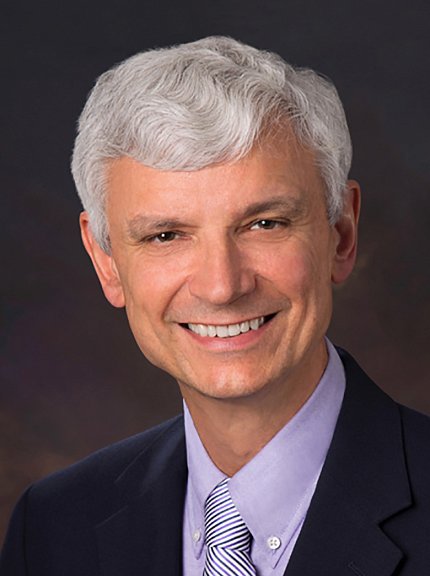NINDS’s Kehne Retires After 35 Years in Neuroscience

For 35 years, Dr. John Kehne, a program director in NINDS’s Division of Translational Research, has built a career in neuroscience—primarily focused on discovery and development of new drugs for treating central nervous system (CNS) disorders. He officially retired on June 30.
“I have had a very satisfying career in neuroscience, and feel very gratified that at NINDS I have helped position the Epilepsy Therapy Screening Program [ETSP] for further success, helped build a new screening program for finding non-addicting analgesics and recruited great teams to maximize future success,” said Kehne. “I won’t leave neuroscience, but I have what seems like several lifetimes of interests and activities I would like to pursue.”
Raised by parents who valued broad-based education and stressed the importance of science to their 9 children, Kehne developed an early appreciation for science and had a particular fondness for astronomy. In fact, he might have pursued a career in astronomy if Amherst College had not established the first neuroscience undergraduate program in the United States during his sophomore year. After taking a “fascinating” psychopharmacology course, Kehne became one of the nation’s first undergraduate neuroscience majors.
“Bottom line, I still loved astronomy but, to quote the poet Robert Frost, it would be the ‘road not taken’ as neuroscience and psychopharmacology would form my career’s trajectory,” Kehne said.
He earned his bachelor of arts degree in neuroscience from Amherst in 1976 and pursued doctoral training in psychology with an emphasis in psychopharmacology at the University of Massachusetts, earning his Ph.D. in 1983. Kehne completed a postdoctoral fellowship in biological psychiatry in 1985 at Yale University School of Medicine, which led to an associate research scientist position.
Kehne later became a discovery scientist in the pharmacology department at Merrell Dow Pharmaceuticals in Cincinnati. While there, he provided in vivo pharmacology support for a wide variety of projects that targeted various psychiatric and neurological disorders.
In 1996, Kehne joined Neurogen—a CNS biotech company in Branford, Conn.—where he advanced to the level of executive director of pharmacology. At Neurogen, he also served as the biology co-leader of a team that identified and characterized novel CRF-1 receptor antagonists for the treatment of depression, anxiety and stress-related disorders, helping to successfully secure a multi-year collaboration with a large pharmaceutical company.
Upon leaving Neurogen, Kehne became an independent consultant working with biotech companies to advance compounds through discovery and development.
In 2012, he joined the NINDS Division of Translational Research (DTR) as a scientific project manager and acting director of the Anticonvulsant Screening Program (now ETSP)—a preclinical platform for identifying potential new drug treatments for epilepsy. He later became a DTR program director with interests in preclinical pharmacology, animal models and preclinical neurotherapeutic development, and head of ETSP.
“I was particularly excited by the specific challenge posed to me of taking a longstanding, highly successful preclinical epilepsy screening program to the next level to address critical unmet medical needs in epilepsy,” said Kehne.
Most recently, he contributed to the conception and development of a new NINDS preclinical program for identifying non-addicting analgesic alternatives to opiates, as part of the NIH Helping to End Addiction Long-term (HEAL) Initiative to address the nation’s opioid crisis. According to Kehne, ETSP served as a prototype for this new program.
In retirement, Kehne plans to pursue his many hobbies and interests including several outdoor activities such as gardening, hiking and canoeing, as well as woodworking, music and rekindling his passion for astronomy.
“Throughout my career, I have been fortunate to be a member of many talented teams that have tackled immensely challenging problems,” he said. “To quote Michael Jordan, ‘Talent wins games, but teamwork and intelligence win championships.’ So, I truly thank all of those team members with whom I have had the privilege of working and I applaud my NINDS colleagues for the tremendous progress made in advancing an array of new translational programs to facilitate therapy development.”
